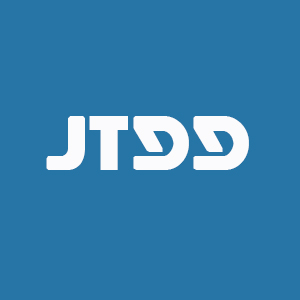Obesity associated cancers, genetics, epigenetics and elephants
Obesity is estimated to affect more than 110 million children and 640 million adults and is associated with significant co-morbidities, including cardiovascular diseases, Type II diabetes mellitus, and thirteen types of cancer[1]. JTGG recently published a special edition focused on Genetics and Epigenetics of Obesity Associated Cancers to help better understand factors driving the obesity - cancer linkage.
Qu et al. reported that, compared to low-fat diet, when subjecting the C57Bl6J APC+/+ and C57Bl6J APCMin/+ mice to high-fat diet for only 3 days, there was a noticeable shift in the acetylation of Lysine 27 in
Using similar techniques to measure H3K27ac, Li et al. showed that 15-20 weeks of high-fat diet feeding to C57Bl6 mice reproduced the chromatin gene enhancer landscape to resemble that in colorectal cancer[3]. They showed that genes dysregulated by high-fat diet were connected to inflammation, cancer, cellular movement, and tissue development. When similar studies were conducted in NAG-1 transgenic mice, which are resistant to high-fat-diet-induced weight gain, the chromatin changes characteristic of cancer were not identified. The authors concluded that the pro-carcinogenic epigenetic changes were due to obesity rather than diet itself[3].
Exploration of DNA methylation in high-fat diet-fed C57Bl6J mice showed epigenetic changes supportive of long-chain fatty acid oxidation and downregulation of feedback inhibitors of pro-proliferative signaling pathways in older mice[4]. Obesity-associated upregulated genes in aged mice were associated with cell cycle, DNA replication and repair, and chromatin organization. It is noteworthy that these changes were reversible, following long-term (28 weeks) but not short-term (5 weeks) weight loss[4].
Focusing their analysis on the proteome, Comertpay and Gov[5] applied a machine learning approach to a high-throughput gene expression dataset from patients with breast cancer to study obesity-associated protein networks, interactions and differentially expressed genes. They identified 19 downregulated and 4 upregulated genes in obese compared to non-obese women with breast cancer, indicating significant activation of cancer-associated pathways, including RAF-independent MAPK 1/3 activation, collagen degradation, bladder cancer, cytochrome P450 metabolism, and hedgehog. These observations may be useful for risk assessment of disease progression in patients with breast cancer and approaches to precision medicine[5].
In a tri-racial ethnic population of breast cancer patients, Puyana et al. used 35 externally validated, single nucleotide polymorphisms to determine whether racial/ethnic differences in Polygenic Risk Score (PRS) contribute to obesity and inflammatory biomarkers in patients with breast cancer[6]. They identified an obesity PRS that correlated with body mass index and CRP levels that were associated with eligibility for bariatric surgery. Although little is known about the impact of bariatric - metabolic surgery on
These reports provide insights into selected aspects of the broad spectrum of genetic, epigenetic, and proteomic data available for obesity-associated cancers that may be potentially useful as targets for therapeutic intervention and/or as biomarkers for monitoring cancer predisposition, prognosis, and preventive strategies. At the same time, their diversity is somewhat reminiscent of the Buddhist parable of the group of blind men asked to describe an elephant by touching different parts to examine the animal. Each man described the elephant based on their limited experience: leg, trunk, ear, and tusk, but no one could provide a comprehensive description of the entire animal. Practically speaking, no one would know how to deal with the elephant based solely on their limited encounters. By analogy to the parable, what is clearly needed is a coordinated, comprehensive, multi-omic assessment of obesity-associated cancer, genetics, epigenetics, and proteomic characteristics over a time course to gain a deeper understanding of how these factors influence cancer incidence, progression, and control, and to shed light on potential therapeutic targets within these different aspects. In addition, more detailed information on the genetic, epigenetic and proteomic consequences of exercise, bariatric - metabolic surgery and new classes of weight loss pharmaceutical agents will further enhance our comprehension and strategies pertaining to obesity-associated cancers. And by the way, what do we know about genetics, epigenetics and proteomics of obesity associated cancers in the elephant, the largest land mammal, with the greatest fat mass.
DECLARATIONS
Authors’ contributions
The author contributed solely to the article.
Availability of data and materials
Not applicable.
Financial support and sponsorship
This research was supported in part by NIH Grant P30 CA043703. The funder had no role in the preparation, review, or approval of the manuscript, or in the decision to submit this manuscript for publication.
Conflicts of interest
The author declared that there are no conflicts of interest.
Ethical approval and consent to participate
Not applicable.
Consent for publication
Not applicable.
Copyright
© The Author(s) 2023.
REFERENCES
1. Lauby-Secretan B, Scoccianti C, Loomis D, Grosse Y, Bianchini F, Straif K. International Agency for Research on Cancer Handbook Working Group. Body fatness and cancer - viewpoint of the IARC working group. N Engl J Med 2016;375:794-8.
2. Qu DC, Neu D, Khawaja ZQ, et al. Epigenetic effects of high-fat diet on intestinal tumorigenesis in C57BL/6J-ApcMin/+ mice. J Transl Genet Genom 2023;7:3-16.
3. Li R, Grimm SA, Chrysovergis K, et al. Obesity, rather than diet, drives epigenomic alterations in colonic epithelium resembling cancer progression. Cell Metab 2014;19:702-11.
4. Li R, Grimm SA, Mav D, et al. Transcriptome and DNA methylome analysis in a mouse model of diet-induced obesity predicts increased risk of colorectal cancer. Cell Rep 2018;22:624-37.
5. Comertpay B, Gov E. Identification of molecular signatures and pathways of obese breast cancer gene expression data by a machine learning algorithm. J Transl Genet Genom 2022;6:84-94.
Cite This Article
How to Cite
Download Citation
Export Citation File:
Type of Import
Tips on Downloading Citation
Citation Manager File Format
Type of Import
Direct Import: When the Direct Import option is selected (the default state), a dialogue box will give you the option to Save or Open the downloaded citation data. Choosing Open will either launch your citation manager or give you a choice of applications with which to use the metadata. The Save option saves the file locally for later use.
Indirect Import: When the Indirect Import option is selected, the metadata is displayed and may be copied and pasted as needed.
About This Article
Special Topic
Copyright
Data & Comments
Data

















Comments
Comments must be written in English. Spam, offensive content, impersonation, and private information will not be permitted. If any comment is reported and identified as inappropriate content by OAE staff, the comment will be removed without notice. If you have any queries or need any help, please contact us at [email protected].